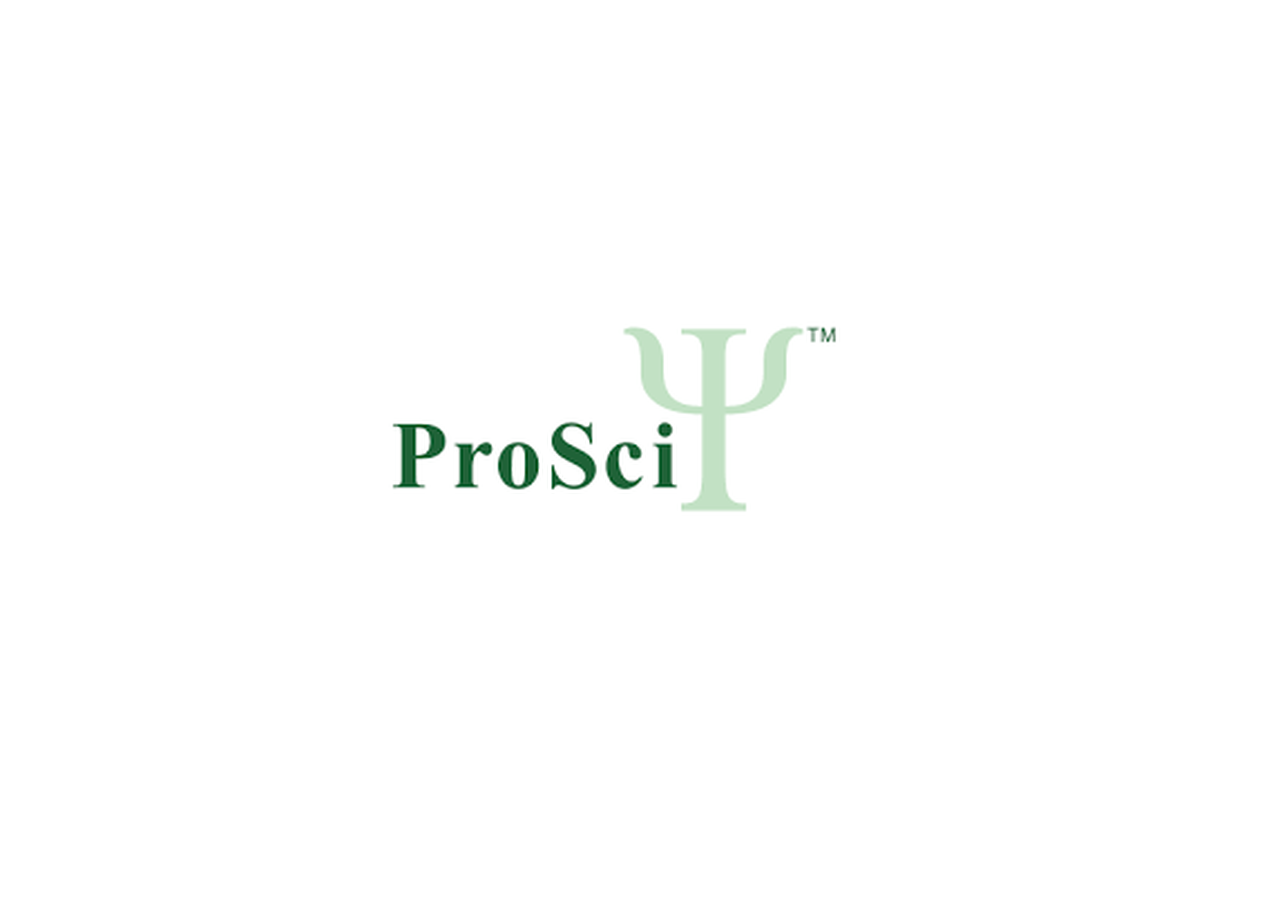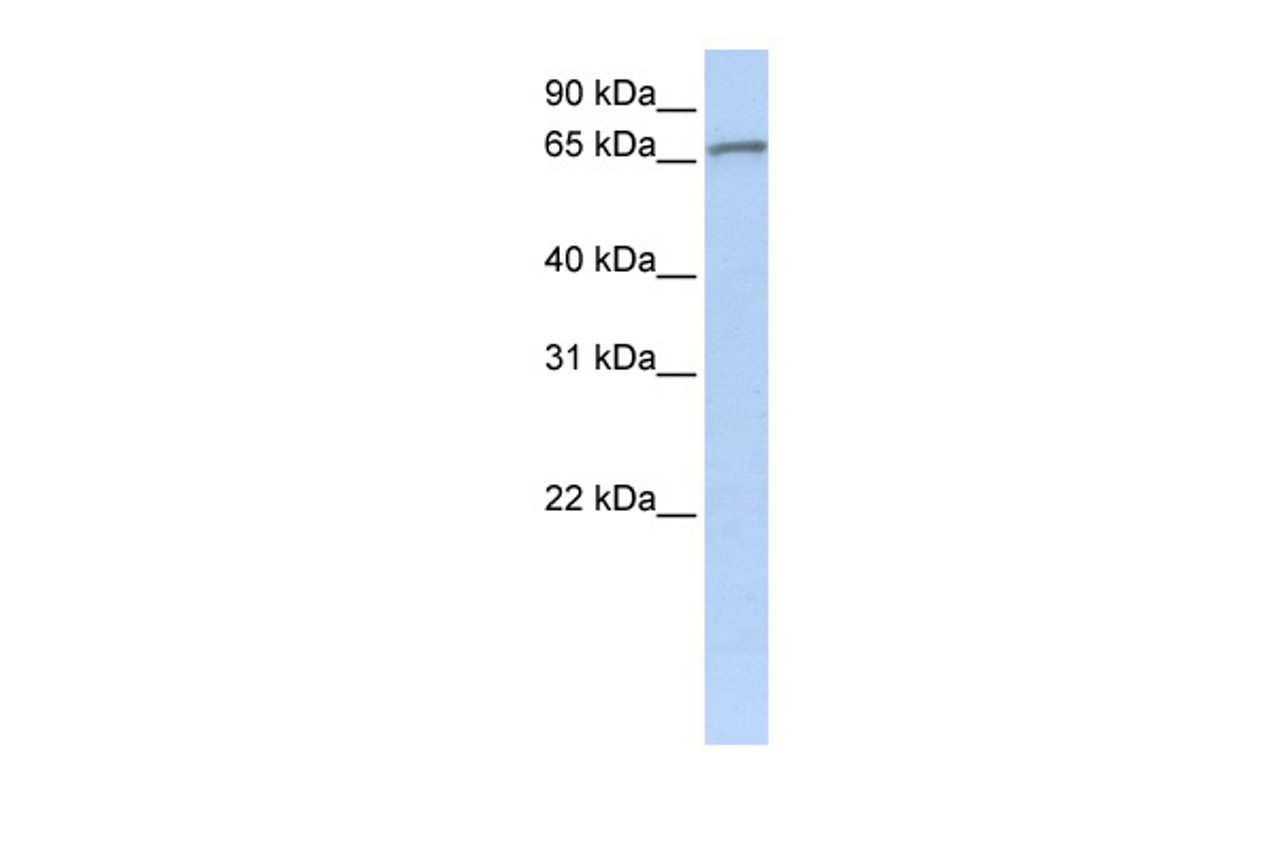Product Description
ZNF41 Antibody | 26-257 | ProSci
Host: Rabbit
Reactivity: Human, Mouse, Rat
Homology: N/A
Immunogen: Antibody produced in rabbits immunized with a synthetic peptide corresponding a region of human ZNF41.
Research Area: Transcription
Tested Application: E, WB
Application: ZNF41 antibody can be used for detection of ZNF41 by ELISA at 1:312500. ZNF41 antibody can be used for detection of ZNF41 by western blot at 1 μg/mL, and HRP conjugated secondary antibody should be diluted 1:50, 000 - 100, 000.
Specificiy: N/A
Positive Control 1: Cat. No. 1205 - Jurkat Cell Lysate
Positive Control 2: N/A
Positive Control 3: N/A
Positive Control 4: N/A
Positive Control 5: N/A
Positive Control 6: N/A
Molecular Weight: 89 kDa
Validation: N/A
Isoform: N/A
Purification: Antibody is purified by peptide affinity chromatography method.
Clonality: Polyclonal
Clone: N/A
Isotype: N/A
Conjugate: Unconjugated
Physical State: Liquid
Buffer: Purified antibody supplied in 1x PBS buffer with 0.09% (w/v) sodium azide and 2% sucrose.
Concentration: batch dependent
Storage Condition: For short periods of storage (days) store at 4˚C. For longer periods of storage, store ZNF41 antibody at -20˚C. As with any antibody avoid repeat freeze-thaw cycles.
Alternate Name: ZNF41, MGC8941, MRX89
User Note: Optimal dilutions for each application to be determined by the researcher.
BACKGROUND: ZNF41 belongs to the krueppel C2H2-type zinc-finger protein family. It contains 18 C2H2-type zinc fingers and 1 KRAB domain. ZNF41 may be involved in transcriptional regulation. A chromosomal aberration, translocation t (X;7) (p11.3;q11.21) , involving ZNF41 has been found in a patient with sever mental retardation. This gene product is a likely zinc finger family transcription factor. It contains KRAB-A and KRAB-B domains that act as transcriptional repressors in related proteins, and multiple zinc finger DNA binding motifs and finger linking regions characteristic of the Kruppel family. This gene is part of a gene cluster on chromosome Xp11.23. Several alternatively spliced transcript variants have been described, however, the full-length nature of only some of them is known.
 Euro
Euro
 USD
USD
 British Pound
British Pound
 NULL
NULL









![ZNF41 Antibody (N-term) [APR31559G] ZNF41 Antibody (N-term) [APR31559G]](https://cdn11.bigcommerce.com/s-452hpg8iuh/images/stencil/500x659/products/871804/1163871/logo__92149.1659788186__62936.1659868213.png?c=2)
